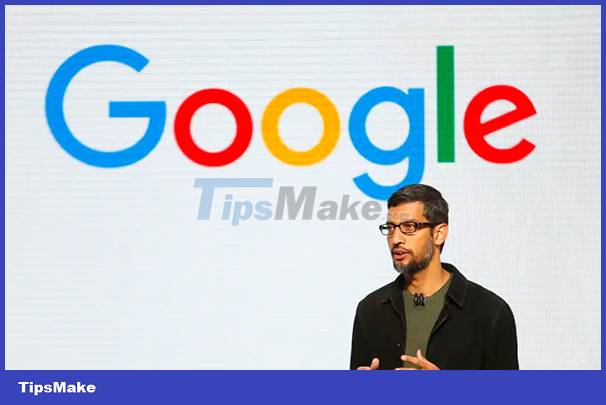Is Google's Helpful Content Algorithm Really Helpful?
Search giant Google also has many changes in its approach, reducing staff in search guidelines (Search guidelines) or having a new approach in useful content algorithms are two of them.
What is Google Helpful Content Algorithm ?

First launched in 2022, Google's helpful content algorithm (Google Helpful Content) or Google's Helpful Content System is designed to 'reward' websites with good content quality, content created for users instead of search engines.
However, this algorithm still faces many criticisms from website owners, claiming that Google cannot find so-called 'useful' content from online content.
'This is a joke, the content is well researched, well written, filled with original content and images but is not prioritized, Google is clearly forcing publishers to create content garbage from AI (artificial intelligence).'
Website owners complain that while Google's recent 'useful content' algorithm update was supposed to improve the quality of search results, the truth is that it has been happening in a different way. Different ways.
In the recent September Google Helpful Content algorithm update, Google said that Google's search system will not only continue to prioritize useful content, created for humans to read, but also loosen restrictions on content. with content created by AI tools.
Although the so-called 'useful' is still not really evident in how Google ranks content on search results pages (SERPs), Google's new perspective on AI (artificial intelligence) content ) also raises many concerns about copyright, authenticity or even the quality of the content.
Also according to Google itself, instead of 'useful content' as before being content 'created by people and useful to everyone', it will now be 'useful content is content written for everyone'.
Also according to this announcement, search engines will still promote AI-generated content in search results pages as long as it is considered 'high quality'.
As things stand, many website owners say AI-generated content is ranking higher than human-written content, while others say content is ranking higher than human-written content. high rank is not really 'useful'.
Many websites and information on SEO forums also say that AI-generated content has also begun to appear above their content (which was originally written by humans).
While Google regularly updates its algorithms, and content creators and website owners still have headaches with it, some website owners claim they have never seen a change. changed like this before.
AI-generated content and many potential dangers.
According to sharing from Google: 'The useful content algorithm is designed to display more useful content in search results, created to help or inform people, the content created just to get a better ranking position on Google search will be less visible.'
'We don't target content produced using any particular method – whether AI or otherwise – we only care about the quality of a given website and its usefulness to users. read.'
While Google's main goal seems to be to lower the rankings of websites that reuse content or rearrange information already available in the online environment for the purpose of ranking higher in search results pages.
The problem is large language models (LLMs) like PaLM 2 or Llama 2, which are trained on large amounts of content freely available from the Internet. So, in essence, these AI models are cleverly reusing what has been published before. That should be something Google punishes.
However, with what Google is doing, it is being understood in the opposite way, Google still prioritizes AI-generated content as long as it is 'quality' in the understanding of Google's algorithms. .
From MarketingTrips' point of view, it is clear that Google is still using a 'double strategy', on the one hand, Google says that AI content is fine, but on the other hand, it prioritizes useful content and co-original content. We recommend that websites use AI tools to write SEO content.
Detecting AI content is impossible.
Given what's going on, a problem for both users and Google is that the search engine currently cannot tell the difference between machine-generated and human-generated content.
While Google has announced that it will reduce rankings and punish content that lacks usefulness or low quality, the search engine has not been able to offer specific solutions on how it detects and differentiates content. AI content.
Although the benefits created by AI technologies are obvious, how to apply it in specific contexts is still a difficult problem without an answer.
You should read it
- ★ Google 'prioritizes' sites that use HTTPS protocol
- ★ 3 free tools to keep track of Google update algorithms every day
- ★ Google is about to update the new search algorithm
- ★ Google changes the algorithm, highlighting what users are looking for
- ★ How to translate web pages into Vietnamese, English or any language